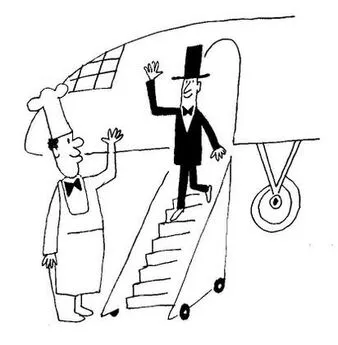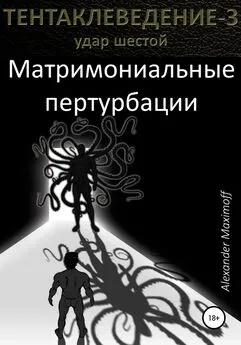ALEXANDER KENT - TO GLORY WE STEER
- Название:TO GLORY WE STEER
- Автор:
- Жанр:
- Издательство:неизвестно
- Год:неизвестен
- ISBN:нет данных
- Рейтинг:
- Избранное:Добавить в избранное
-
Отзывы:
-
Ваша оценка:
ALEXANDER KENT - TO GLORY WE STEER краткое содержание
Portsmouth, 1782. His Britannic Majesty's frigate, Phalarope, is ordered to assist the hard-pressed squadrons in the Caribbean. Aboard is her new commander-Richard Bolitho. To all appearances the Phalarope is everything a young captain could wish for, but beneath the surface she is a deeply unhappy ship-her wardroom torn by petty greed and ambition, her deckhands suspected of cowardice under fire and driven to near-mutiny by senseless ill-treatment.
TO GLORY WE STEER - читать онлайн бесплатно полную версию (весь текст целиком)
Интервал:
Закладка:
Knowing all these things, even to the chosen time, Vibart had waited breathlessly in his cabin. Squeezed in the wardroom had been the ship's full complement of marines, their sergeant another of Vibart's willing helpers. It was such a straightforward plan that Vibart had wanted to laugh at its simplicity.
The mutineers would rush the quarterdeck and overpower the watch. Herrick, rather than raise the alarm and drive Pomfret to another bloody frenzy, would try to quieten them, to listen to their complaints. But the men would kill him, and then Vibart would rush on deck and blanket the quarterdeck with musket fire…
At the court of enquiry even the most biased admiral would not fail to see that Vibart had saved the ship, when one officer lay dead with his watch and the captain slept in a drunken stupor.
Even now on the wet hillside Vibart could remember the sound of his own breathing in that sealed cabin. Then the stealthy approach of the mutineers even as two bells pealed out from forward. But there were no shots, and no cries. No rasp of steel, or the sound of Herrick's last gasp for life.
When at last, unable to control his anxiety, he had crept on deck he had found Herrick at his post, the maindeck deserted.
The young lieutenant had reported the incident as a `deputation' concerned with the welfare of the dying Fisher. That was all. When Vibart had pushed him further, Herrick had still stood his ground, his anger giving way to contempt as his eyes had fallen on Vibart's loaded pistols and the marine sergeant at the cabin hatch.
The next morning Pomfret had been almost as beside himself as if an actual mutiny had broken out. `Complaints?' He had screamed at Vibart across the wide cabin. `They dare to complain?' Even without much prompting he had seen the men's actions as a real challenge to his own authority.
When at last the frigate had been ordered to Portsmouth to face an enquiry, Vibart had known fresh hope. Things had moved fast. The ship had been stripped of known troublemakers -and had been fitted out for another long spell of service. Pomfret had stayed in his cabin, sulky and brooding up to the time he was ordered from the ship. But no new commission had arrived for Vibart. No command of either the Phalarope or any other ship.
He was back exactly as he had been when he had first joined the frigate under Pomfret, except that the new captain, Bolitho, was another kind of person entirely.
He jerked from hiss thoughts as Maynard called breathlessly, `Sir! One of the men is signalling from the hillside!'
Vibart drew his sword and slashed sharply at a small bush. `So the captain guessed right, did he?' He waved his arm in a half circle. `Right, you men! Get to either side of the road and wait for Mr. Farquhar's party to work round behind them. I don't want anyone to escape!' He saw the men nod and shuffle to the bushes, swinging their clubs and readjusting their cutlass belts.
When the moment of contact actually came, even Vibart was taken off guard.
It was more like a carefree procession than a party of men avoiding the press gangs. Some fifty or more men tightly bunched on the narrow track, talking, some even singing as they strolled aimlessly away from Falmouth and the sea.
Vibart saw Farquhar's slim silhouette break the skyline and stepped out from the bushes. His appearance could not have affected them more deeply had he been something from another world. He held up his sword as his men stepped out across the road behind him.
`In the King's name! I charge you all to line up and be examined!' His voice broke the spell. Some of the men turned and tried to run back along the road, only to halt gasping 'at the sight of Farquhar's men and the levelled muskets. One figure bolted up the hillside, his feet kicking the grass like some terrified rabbit.
Josling, a bosun's mate, lashed out with his cudgel. The man screamed and rolled down the slope and lay in a puddle clutching his shin. Josling turned him over with his foot and felt the man's bleeding leg. Then he looked at Vibart and said offhandedly, `No eggs broken, sir!'
Shocked and dazed the men allowed themselves to be pushed into line on the road. Vibart stood watching and calculating. It had been so easy that he wanted to grin.
Brock said, `Fifty-two men, sir. All sound in wind and limb!'
One of the uneven rank dropped on to his knees and whimpered, `Please, please, sir! Not me!'
There were tears on his cheeks, and Vibart asked harshly, `What is so special about you?’
'My wife, sir! She's ill! She needs me at home!' He rocked on his knees. "She'll die without my support, sir, in God's name she will!'
Vibart said wearily, `Stand that man on his feet. He makes me sick!'
Another at the end of the rank said in a tight voice, `I am a shepherd, I'm excused from the press!' He stared round challengingly until his eye fell on Brock. `Ask him, sir. The gunner will bear me out!'
Brock sauntered across to him and held up his cane. `Roll up your sleeve.' He sounded bored, even indifferent, and several of the watching men forgot their shocked misery to lean from the rank-and watch.
The man in question took a half-pace away, but not quickly enough. Like a steel claw Brock's hand fastened on his rough shirt and tore it from his arm to display an interwoven tattoo of crossed flags and cannon.
Brock stepped back and swayed on his heels. He looked along the rank. `No man has a tattoo like that unless he is a seaman.' His voice was slow and patient, like a schoolmaster with a new class. `No man would recognise me as a gunner unless he had served in a King'ss ship!'
Without warning his cane flashed in the weak sunlight. When it returned to his side the other man had blood on his face where it had cut almost to, the bone.
The gunner looked at him levelly. `Most of all, I dislike being taken for a fool!' He turned his back, dismissing the man from his mind.
A seaman yelled, `Another signal, sir! One more group comin' down the road!'
Vibart sheathed his sword. `Very well.' He looked coldly at the shivering line of men. `You are entering an honourable service. You have just learned the first lesson. Don't make me teach you another!'
Maynard fell into step beside him his face troubled. `It seems a pity that there is no other way, sir?'
Vibart did not reply. Like the man who had begged for his wife, such statements lacked both purpose and meaning.
Only aboard the ship did anything count for any of them.
Bolitho sipped at his port and waited until the servant girl had cleared away the table. His stomach had long grown used to meagre and poorly cooked shipboard food, so that the excellent meal of good Cornish lamb left him feeling glutted and uncomfortable.
Across the table his father, James Bolitho, drummed impatiently on the polished wood with his one remaining hand and then took a long swallow of port. He seemed ill at ease, even nervous, as he had been from the moment of his son's arrival.
Bolitho watched him quietly and waited. There was such a change in his father. From his own boyhood dayss to the present time Bolitho had seen his father only on rarely spaced occasions when he had returned here to the family home. From foreign wars and far-off countries, from exploits which children could only guess at. He could remember him as tall and grave in his naval uniform, shedding his service selfdiscipline like a cloak as he had come through that familiar doorway beside the portraits of the Bolitho family. Men like himself, like his son, sailors first and foremost.
When Bolitho had been a midshipman under Sir Henry Langford he had learned of his father's wounds whilst he had been engaged in fighting for the fast-advancing colonies in India, and when he had seen him again he had found him suddenly old and embittered. He had been a man of boundless energy and ideas, and to be removed from the Navy List, no matter how honourably, was more than the loss of an arm, it was like having his life cut from within him.
Locally in Falmouth he was respected as a firm and just magistrate, but Bolitho knew in his heart that his father's very being still lay with the sea, and the ships which came and went on the tide. Even his old friends and comrades had stopped coming to visit him, perhaps unable to bear what their very presence represented. Interest changed so easily into envy. Contact could harm rather than soothe.
Bolitho had a brother and two sisters. The latter had now both married, one to a farmer, the other to an officer of the garrison. Of Hugh, his older brother, nothing had yet been said, and Bolitho made himself wait for what he guessed was uppermost in his father's mind.
`I watched your ship come in, Richard.' The hand drummed busily on the table. `She's a fine vessel, and when you get to- the West Indies again I have no doubt you will bring more honour to the family.' He shook his head sadly. `England needs all her sons now. It seems as if the world must be our enemy before we can find the, right solution.'
It was very quiet in, the house. After the pitch of a deck, the creak of spars, it was like another world. Even the smells were different. The packed humanity, and the varied aromas of tar and salt, of cooking and damp, all were alien here.
It felt lonely, too. In his, mind's eye he could still picture his mother, young and vivacious as he remembered her. Again, he had been at sea when she had died of some brief but final illness. Now there was no companion for James Bolitho, and nobody to sit enraptured or amused by stories of the family's past. exploits.
Bolitho glanced at the great clock. `My men will have found new poeple for the crew by now or not at all,' he said quietly. `It is a sad necessity that we have to get seamen like this.'
His father's face came alive from his inner thoughts. `I believe that their duty is more important than their passing comfort! Every week I have to sign deportation orders for the colonies, or hang useless thieves. Life in a King's ship would have spared them the indignity of life ashore, would have saved them from petty greed and temptation!'
Bolitho studied his father's face and remembered himself as he had appeared in the mirror of the George Inn at Portsmouth. It was there in his father, as it was in the portraits along the walls. The same calm face and dark hair, the same slightly hooked nose. But his father had lost his old fire, and his hair was grey now, like that of a man much older.
His father stood up and walked to the fire. Over his shoulder he said gruffly, `You have not yet heard about your brother?'
Bolitho tensed. `No. I thought he was still at sea.'
`At sea?' The older man shook his head vaguely. `Of course, I kept it from you. I suppose I should have written to you, but in my heart I still hoped he might change his ways and nobody would have known about it."
Bolitho waited. His brother had always been the apple of his father's eye. When last he had seen him he had been a lieutenant in the Channel Fleet, the next in line for this house and for the family inheritance. Bolitho had never felt particularly close to Hugh, but put it down to a natural family jealousy. Now, he was not so sure.
`I had great hopes for Hugh.' His father was talking to the fire. To himself. `I am only glad his mother is not alive to know of what he became!'
`Is there something I can do?' Bolitho watched the shoulders quiver as his father sought to control his voice.
`Nothing. Hugh is no longer in the Navy. He got into debt gambling. He always had an eye for the tables, as I think you know. But he got into deep trouble, and to end it all he fought a duel with a brother officer, and killed him!'
Bolitho's mind began to clear. That explained the few servants, and the fact that over half the land belonging to the house had been sold to a local farmer.
Читать дальшеИнтервал:
Закладка:








